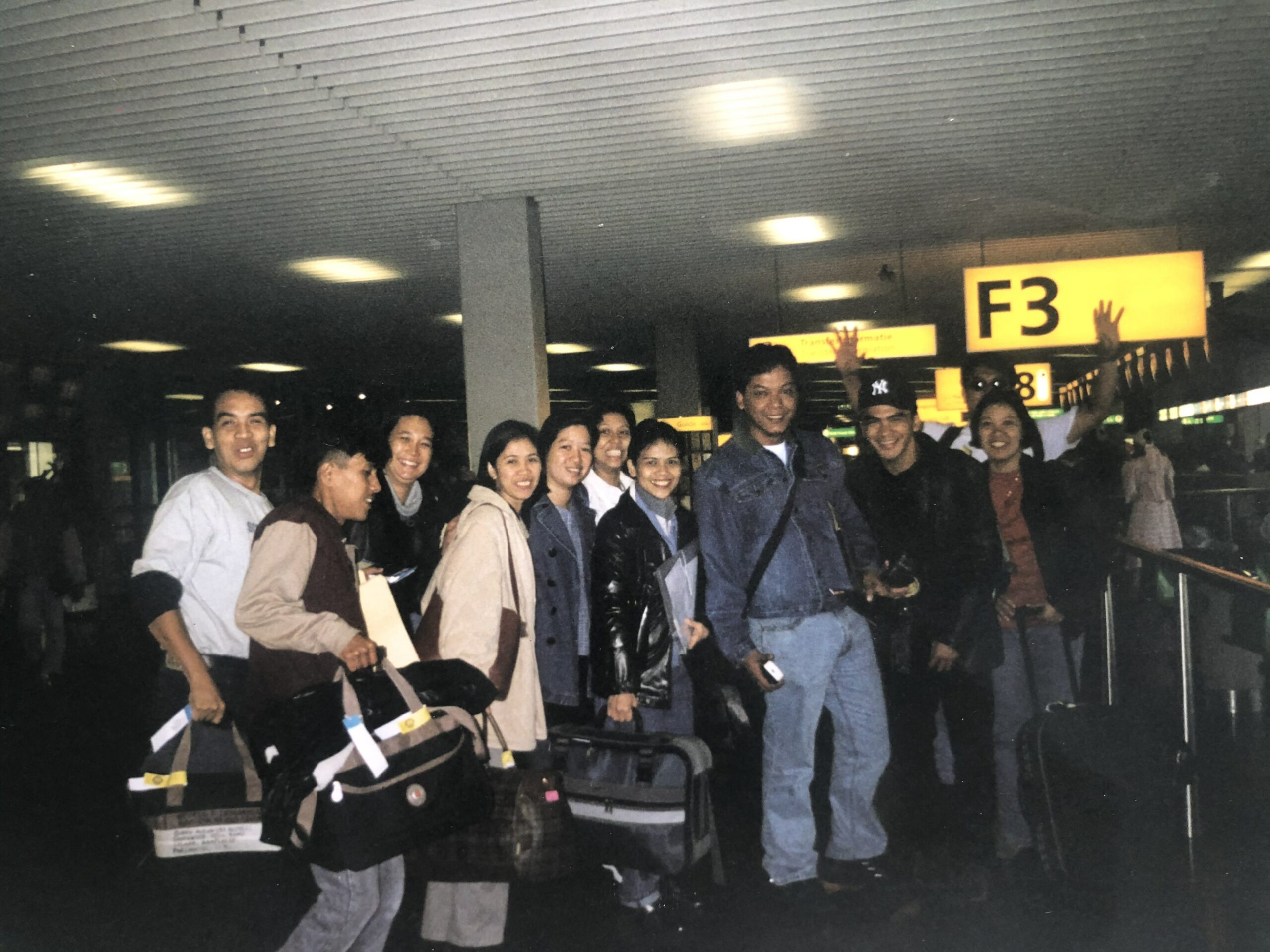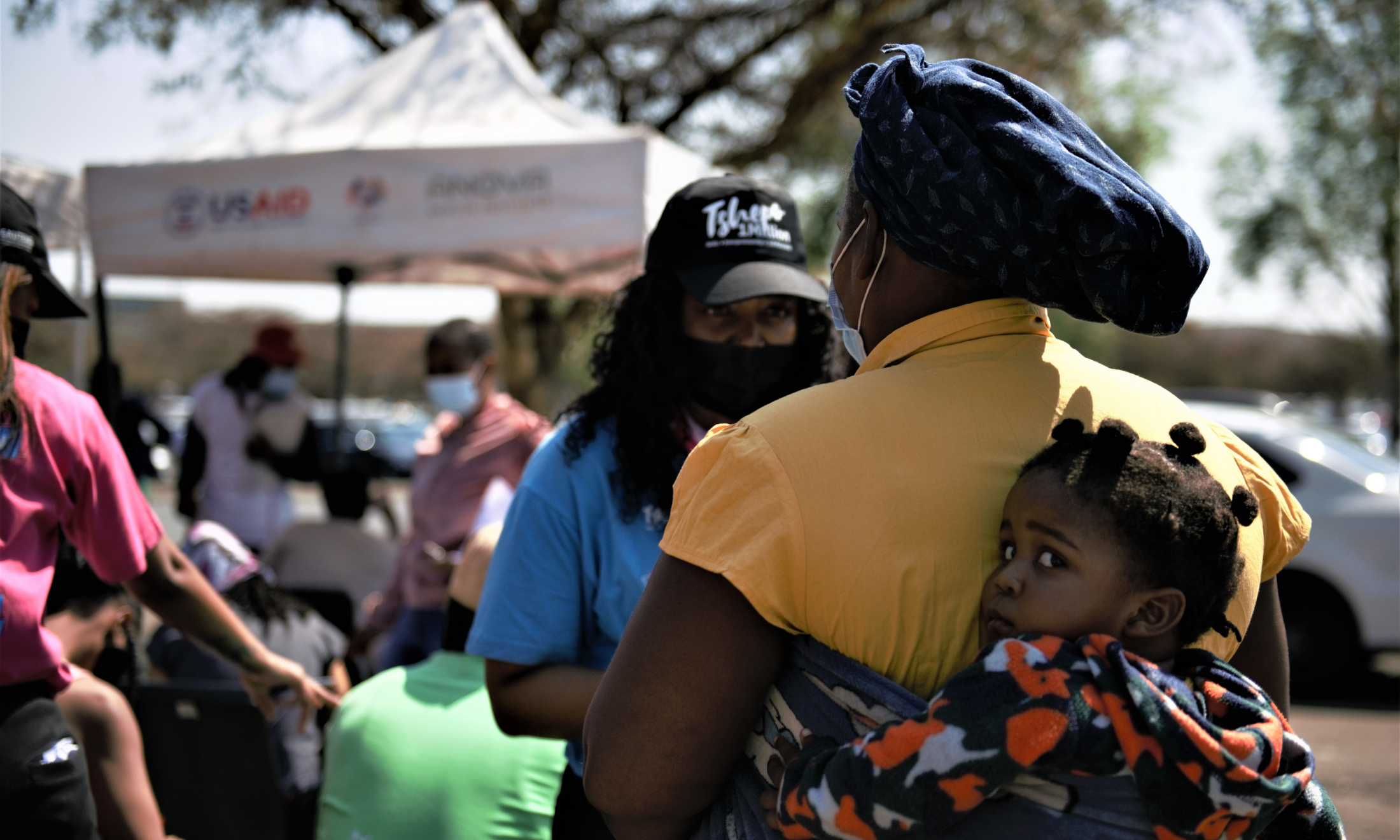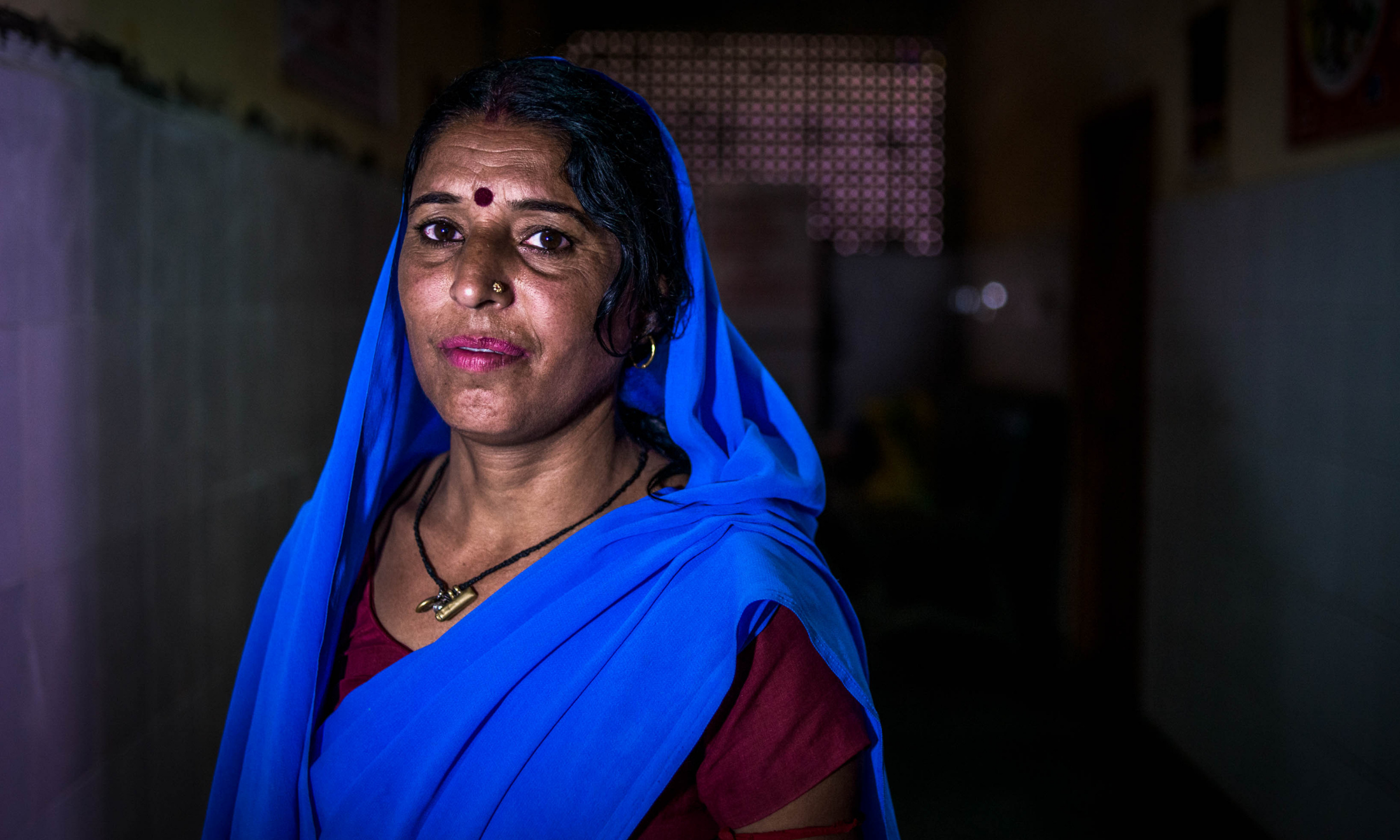How Filipino nurses became the forgotten victims of the pandemic
Filipino nurses like my parents are dying due to the pandemic more than any other demographic, but it feels like no one's talking about it.
Milcah Fajardo
02 Mar 2021

The author's dad pictured with her titos and titas together taken at an airport terminal in Heathrow when they all first arrived in the UK together to work for the NHS
In a midst of a global pandemic, marginalised communities within the NHS are feeling more vulnerable than ever before.
Since the beginning, Covid-19 infection and death rates have been higher among Black, Asian, and minority ethnic groups. But behind the ‘BAME’ acronym that represents datasets relating to those demographics, what hasn’t been conveyed is that there’s been a particularly high death rate among Filipino frontline workers.
While the Filipino community may appear small and quaint in the UK, Filipinos make up the second-largest ethnic group in the NHS with an estimated 40,000 Filipino staff employed.
During the first wave of the pandemic in April 2020, it was widely reported that 71% of NHS key worker deaths were people of colour. What is less well known is that according to HSJ research, as of May 2020 Filipinos were the single largest nationality to die from Covid-19 in the UK and that though Filipinos represent 3.8% of the nursing workforce, they made up 22% of nurse deaths.
The Philippines has been the largest exporter of nurses to countries worldwide for decades, including the UK. Since the 1990s, thousands of Filipino nurses have uprooted their lives, leaving their homes and families, to fly thousands of miles to the UK to work for the NHS. Among these nurses were people like my parents. Together, along with my two other siblings, we’ve been living in the UK for 18 years. Coming here meant leaving my Lola (grandma), and all our relatives behind in the Philippines, a situation familiar to many Filipino families around the UK.
This displacement meant we extended our family in the UK with other members of the Filipino community, who had also left everything behind. The Filipinos within our community became our new immediate family. It is these people whom we celebrate the holidays with, share our special moments with, and who we stay up till 1am with, singing non-stop karaoke together.
Growing up within the Filipino community, we were always reminded of the important value of sacrifice. My parents, like so many other Filipino nurses who immigrated to the UK, sacrificed so much to be here. And now, in a time when Filipino frontline workers are losing their lives, I can’t help but reflect on that.
“During the first wave, I would get phone-call after phone-call from my mum telling me relatives had passed away”
When the pandemic hit, it became overwhelmingly clear to me that the Filipino community was impacted hard by Covid-19. Just like that, almost every Filipino I knew was part of the fight against the virus. During the first wave, I would get phone-call after phone-call from my mum telling me, “Anak, (my child) pray for your Tito Brad he tested positive for Covid… Anak, pray for your Tita Karen, her mum passed away from coronavirus.” As a woman of faith, my mum took it upon herself to reach out and pray for our Filipino family friends in our community. But as cases rose, the more prayers requests she had.
A large portion of frontline workers are PoC. But despite them being the most vulnerable working on the frontlines, there was a lack of protection for them due to a lack of PPE resources.
Grace Abat, a 43-year old senior staff nurse, experienced first-hand what it was like on the frontlines with no PPE. She has been working as a nurse in Portsmouth for over 20 years, having moved to the UK from the Philippines in 2000. During the pandemic, she worked as the head of the respiratory ward where the majority of Covid-19 patients were cared for.
“At the time we didn’t know what we were fighting, or where the source of the diseases was,” says Grace. “Seeing patient after patient dying from Covid-19, you see the worry in their eyes and it’s that worry as a frontline worker that debilitates you.”
The lack of PPE provided for frontline workers left NHS staff like Grace and her colleagues exposed and vulnerable to Covid-19. “There was no PPE, no equipment, it’s like fighting in a battle with nothing to defend yourself with – it was a life or death situation,” she adds.
In April, Grace lost her sister, Ofelia, to Covid-19. Ofelia, was working as a nurse in New York when she contracted the virus. Due to strict lockdown restrictions, Grace and her family were unable to be there for her before she passed away in the Covid-19 wards, isolated, scared, and struggling for breath.
“When I think about how she passed away, alone, I’ve come to realise to pay extra attention to the patients,” says Grace. “So I tell my colleagues to really think of them when caring for them because when you’re locked in the room, poorly, and everyone is afraid of coming near you. That perception will teach you to really practise empathy for the patients.”
If it wasn’t for her strong family support system and her responsibility to lead her colleagues as the senior staff nurse of her ward, Grace could’ve easily allowed the impact of the pandemic to destroy her. Instead, she shares her story of loss with colleagues, friends, and family to remind them to show empathy to everyone, especially patients, during this time.
Despite catching Covid-19 in the first wave of the pandemic, thankfully Grace did not experience any health complications with her symptoms and had a speedy recovery. However for 50-year old trauma nurse, Elmer Maniebo, the experience with Covid-19 was the polar opposite.
“There was no PPE, no equipment, it’s like fighting in a battle with nothing to defend yourself with”
For over 20 years, Elmer has worked as an NHS nurse on trauma wards in the UK. He was there when the very first Covid-19 patient was admitted into his ward at Queen Alexandra Hospital, Portsmouth. Despite attempts to protect himself, Elmer tested positive for Covid-19 in January, 2021. He experienced awful symptoms.
“I got hit badly with it. I think of myself as a health and fitness fanatic, I’m very active, never smoke, never drink,” says Elmer. “My partner and I tested positive at the same time, and she is the complete opposite of me when it comes to lifestyle, but it took me double her time to recover.”
Instead of the usual 10 to 14 days of quarantine recovery period, Elmer took six weeks. He was in and out of the hospital on at least three occasions and required X-rays and CT-scans of his lungs.
“The first three weeks were really bad,” says Elmer. “I had all the worst symptoms, including a dry painful cough, difficulty breathing, and I had low oxygen levels in my blood so they gave me steroids for my breathing. But that didn’t help so I had to go back to the hospital again.”
Being infected with Covid-19 resulted in long-lasting damage to Elmer’s lungs that at first appeared to be blood clots to the doctors. They eventually turned out to be infiltrates in his lungs, which identify an infection. This made simple tasks like going up and down the stairs, and walking to the shops difficult, leaving him fatigued and breathless.
Key workers like Grace and Elmer are examples of how members of the Filipino community have been impacted by the Covid-19, yet idly ignored by the UK government, who is yet to acknowledge the community’s existence.
Despite the lack of recognition on the subject from the UK’s government, the disproportionate infection and death rate of Filipino NHS staff became a matter of concern raised by the Philippine ambassador to the country. He urged the NHS to “ensure those heroes that put their lives on the line for us are properly equipped and protected as they do their job”.
Unlike the government, the NHS acknowledged the call. It resulted in the launch of a helpline, equipped with Tagalog-speaking counsellors, to support the health and wellbeing needs of Filipino frontline workers.
After the first wave of Covid-19, the NHS became more equipped with PPE and resources that better prepared frontline staff in time for the second wave. But since then, new issues with key worker protections have been raised in the Filipino community.
“Before the pandemic, no one really cared about the Philippines, no one knew who we are or where it is”
Despite a preliminarily successful rollout of Covid-19 vaccinations, there has been disproportionately few Black and Filipino NHS staff vaccinated. In August, after the NHS trust carried out an enquiry within their PoC staff regarding the vaccine, it has been argued that failure to prioritise Black, Asian, and other ethnic minority groups, and accessibility of the vaccine to them, is to blame for low uptake.
In October 2020, the BBC revealed that of 270,000 people enrolled in vaccine trials, only 7% were BAME. The NHS is still urging PoC NHS staff to get vaccinated to protect them in their role as frontline workers.
The rise in anti-Asian hate crimes and racism has been another issue that has been raised since the first coronavirus outbreak, that has targeted members of the south and east Asian communities, including Filipinos. As reported by Sky News, nurse, Aldarico Jr Velasco, who works at a hospital in the East Midlands, was recently racially abused by a patient who called him a “f*****g Chinese c**t”. His workplace – the University Hospitals of Derby and Burton NHS Foundation Trust which employs nearly 400 Filipino staff – issued a statement expressing that the incident: “comes as no shock as our colleagues regularly report similar instances”.
There is a growing awareness that Filipino NHS staff not only require support as they continue to serve as frontline workers, but also deserve representation and recognition as a community for their contributions to fighting the pandemic.
Thirty-six-year-old George Bermudez, recognised this need when he co-founded the Filipino UK Nurse Community in 2019. The organisation supports and connects Filipino nurses throughout the UK. Through various platforms, they have shed a spotlight on Filipino NHS staff and their stories to raise awareness of their contributions to during the pandemic.
“Our aim was to not only support the Filipino nurses that come here to work in the UK, but to also highlight their hard work and the positive impact they have on UK society,” says George. “Before the pandemic, no one really cared about the Philippines, no one knew who we are, where it is, and we wanted to highlight and actively show that we are a minority that has a big positive impact on UK society.”
One story from FUNC features May Parsons, the nurse who administered the first Covid-19 vaccine in the UK. Parsons was hand-selected by her NHS trust to be a part of the historic delivery of the Covid-19 vaccine that has now been administered to over 17 million people in the UK.
“We wanted to showcase our community,” George says of his aims for FUNC.
Growing up in the UK, there was hardly ever any representation of my country’s contribution. But Filipinos have proved themselves a force to be reckoned with throughout the pandemic, as the invisible cogs helping to keep the NHS moving.
Their tragic losses, their trauma and their sacrifice deserve to be acknowledged by all, including the government.

Britain’s policing was built on racism. Abolition is unavoidable

How Pakistan’s Khwaja Sira and transgender communities are fearing and fighting for their futures

Their anti-rape performance went viral globally. Now what?






